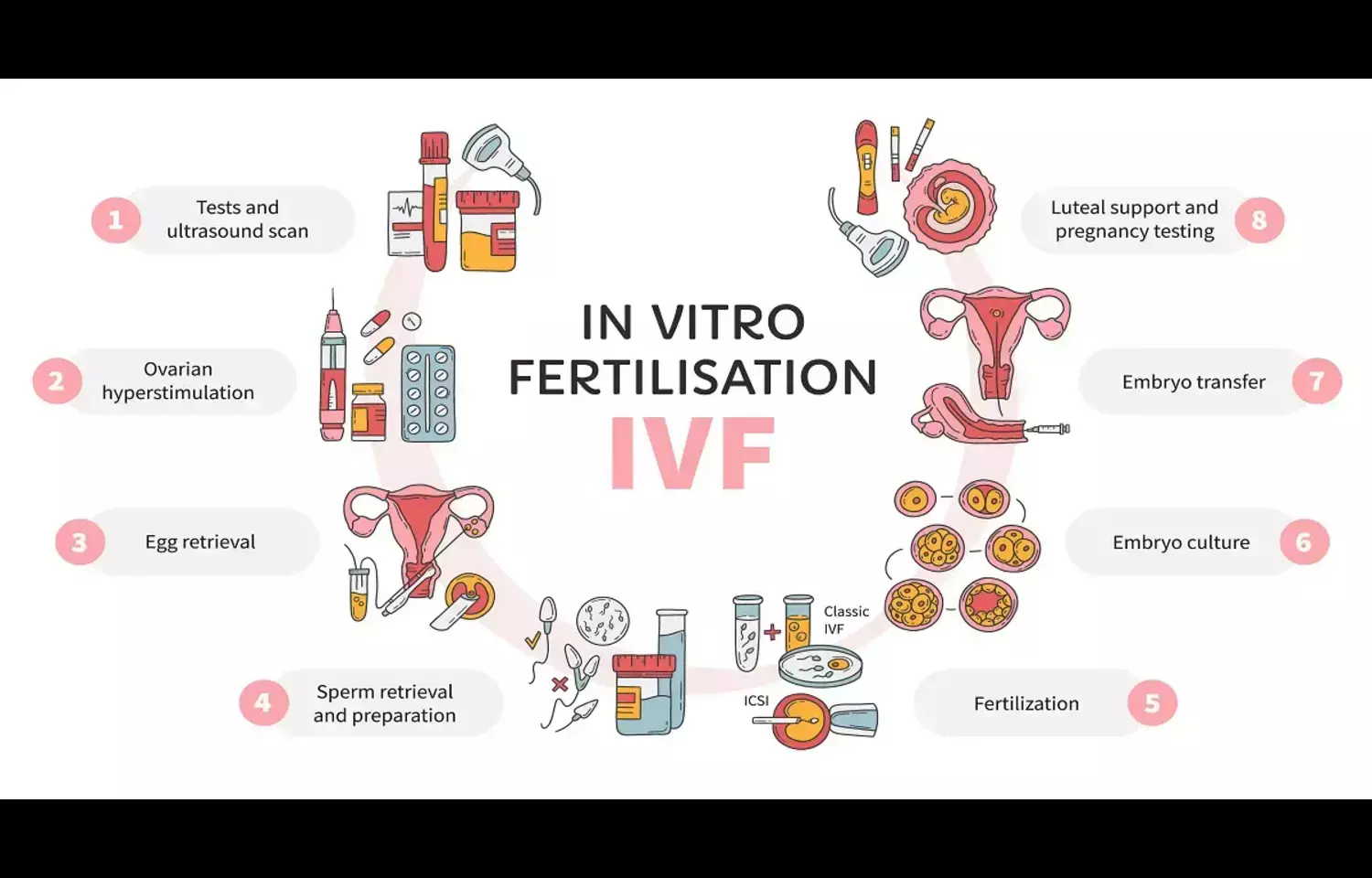TyG-BMI may predict Adverse Pregnancy Outcomes in IVF, suggests research
- byDoctor News Daily Team
- 29 September, 2025
- 0 Comments
- 0 Mins

Researchers have found in a new study that higher triglyceride-glucose body mass index (TyG-BMI) was associated with increased miscarriage rates in both fresh and frozen embryo transfer (FET) cycles, along with reduced live birth rates in FET and cumulative live birth outcomes. TyG-BMI may serve as a practical marker to identify patients at higher metabolic risk before in vitro fertilization (IVF) treatment. Assisted reproductive technologies have transformed infertility care, but pregnancy outcomes remain highly variable due to both clinical and metabolic factors. Traditional predictors such as age, ovarian reserve, and body mass index (BMI) provide only partial insight into reproductive prognosis. TyG-BMI, which integrates lipid and glucose metabolism with body mass assessment, has recently emerged as a potential surrogate marker for insulin resistance, a well-known contributor to suboptimal fertility outcomes. In this study, researchers analyzed IVF outcomes across women stratified by TyG-BMI levels. Results showed that patients with higher TyG-BMI not only had a significantly greater risk of miscarriage in both fresh and frozen embryo transfer cycles but also experienced lower rates of live birth in frozen transfers and reduced cumulative live birth rates. These findings highlight the potential of TyG-BMI as a simple, cost-effective, and non-invasive tool to screen for metabolic risk in women undergoing IVF. The study underscores the importance of preconception metabolic assessment in reproductive medicine. By incorporating TyG-BMI into baseline evaluations, clinicians may be able to identify patients at risk for adverse pregnancy outcomes and provide targeted lifestyle, nutritional, or pharmacological interventions to optimize metabolic health before treatment. This could improve overall pregnancy success rates and reduce the emotional and financial burden associated with repeated IVF cycles. However, the authors cautioned that larger multicenter trials are necessary to validate TyG-BMI as a reliable predictive marker across diverse populations. They also noted that future studies should explore whether interventions aimed at lowering TyG-BMI can directly improve reproductive outcomes. Keywords:TyG-BMI, in vitro fertilization, IVF outcomes, miscarriage risk, frozen embryo transfer, live birth rate, metabolic risk, insulin resistance
Disclaimer: This website is designed for healthcare professionals and serves solely for informational purposes.
The content provided should not be interpreted as medical advice, diagnosis, treatment recommendations, prescriptions, or endorsements of specific medical practices. It is not a replacement for professional medical consultation or the expertise of a licensed healthcare provider.
Given the ever-evolving nature of medical science, we strive to keep our information accurate and up to date. However, we do not guarantee the completeness or accuracy of the content.
If you come across any inconsistencies, please reach out to us at
admin@doctornewsdaily.com.
We do not support or endorse medical opinions, treatments, or recommendations that contradict the advice of qualified healthcare professionals.
By using this website, you agree to our
Terms of Use,
Privacy Policy, and
Advertisement Policy.
For further details, please review our
Full Disclaimer.
Recent News
Drug which stops tumors' blood supply could help k...
- 25 October, 2025
Processed fats found in margarines unlikely to aff...
- 25 October, 2025
Dark chocolate milk intake linked to improved spri...
- 25 October, 2025
Night-time bright light exposure may raise heart d...
- 25 October, 2025
Daily Newsletter
Get all the top stories from Blogs to keep track.


0 Comments
Post a comment
No comments yet. Be the first to comment!